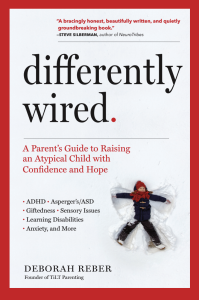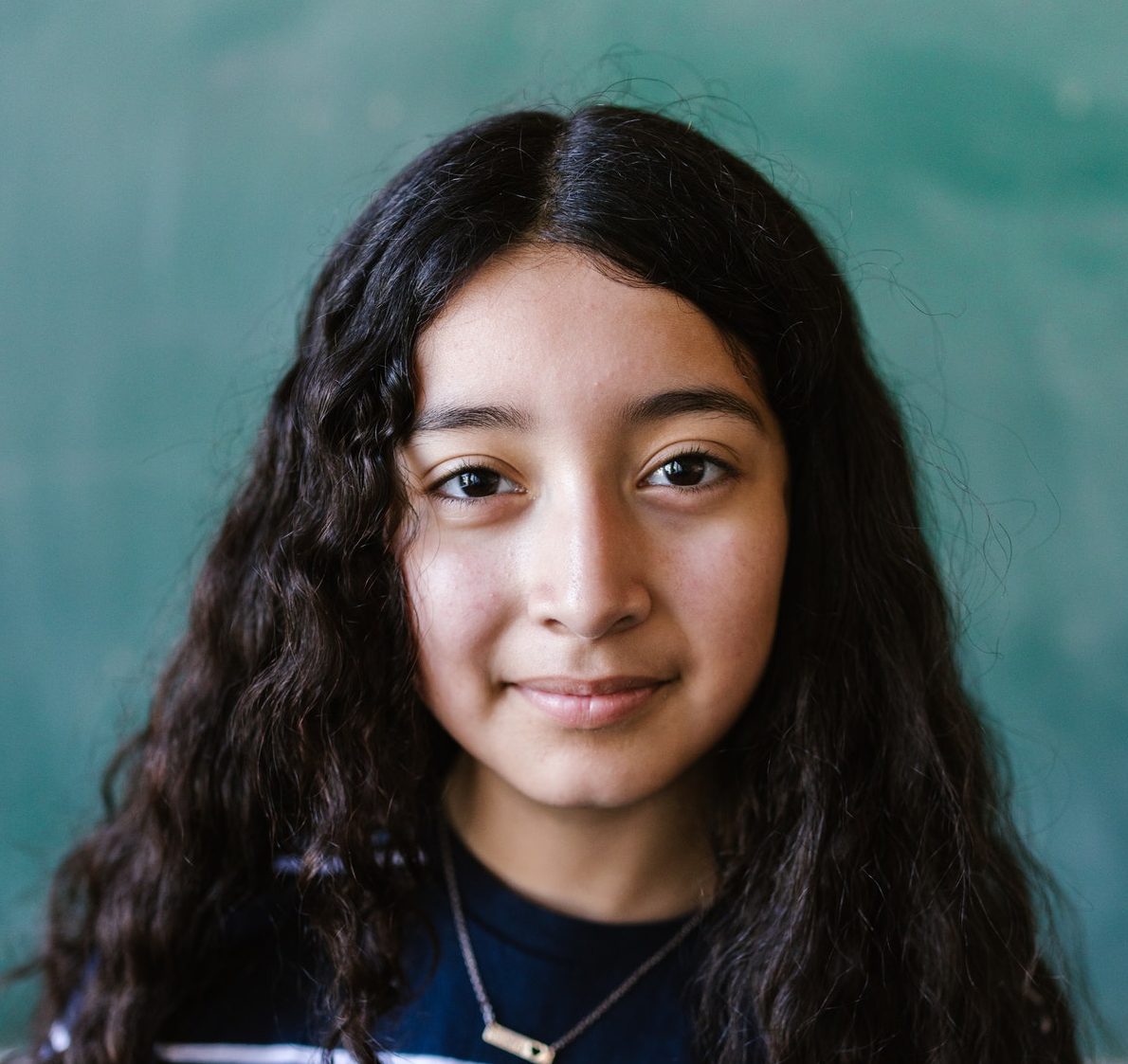Differently Wired. A Parent’s Guide to Raising an Atypical Child With Confidence and Hope
 Today millions of kids are stuck in a world that doesn’t respect, support, or embrace who they really are—these are what Deborah Reber is calling the “differently wired” kids, the one in five children with ADHD, dyslexia, Asperger’s, giftedness, anxiety, sensory processing disorder, and other neurodifferences. Read more ›
Today millions of kids are stuck in a world that doesn’t respect, support, or embrace who they really are—these are what Deborah Reber is calling the “differently wired” kids, the one in five children with ADHD, dyslexia, Asperger’s, giftedness, anxiety, sensory processing disorder, and other neurodifferences. Read more ›


 When Kodi Lee appeared on America’s Got Talent, he did so with the help of a cane and his mother. Walking to center stage and speaking took immense effort. After Lee introduced himself, his mother explained that he is blind and autistic. He’s also a talented musician, making him a prominent example of someone who is twice-exceptional, or 2e – terms used to describe people who are intellectually or artistically gifted and have at least one disability.
When Kodi Lee appeared on America’s Got Talent, he did so with the help of a cane and his mother. Walking to center stage and speaking took immense effort. After Lee introduced himself, his mother explained that he is blind and autistic. He’s also a talented musician, making him a prominent example of someone who is twice-exceptional, or 2e – terms used to describe people who are intellectually or artistically gifted and have at least one disability. 
 Twice-exceptional children — those who are gifted and have a learning disability or neurological disorder like ADHD — often struggle with issues related to social-emotional growth and/or regulation. As a result, many of these students battle anxiety, stress, emotional regulation, social anxiety, and executive dysfunction.
Twice-exceptional children — those who are gifted and have a learning disability or neurological disorder like ADHD — often struggle with issues related to social-emotional growth and/or regulation. As a result, many of these students battle anxiety, stress, emotional regulation, social anxiety, and executive dysfunction. 


 What does 2e look like, and how can you best leverage the strengths and interests of your 2e child during distance learning? In today’s episode, Resilience and Engagement for Every Learner (REEL) founders and parents of 2e kids, Callie Turk and Yael Valek, share the joys and silver linings of flexible learning for 2e students.
What does 2e look like, and how can you best leverage the strengths and interests of your 2e child during distance learning? In today’s episode, Resilience and Engagement for Every Learner (REEL) founders and parents of 2e kids, Callie Turk and Yael Valek, share the joys and silver linings of flexible learning for 2e students. 
 What’s not often well-known or well-understood is that students who are gifted may also have a special need or disability— just as students with disabilities may also be gifted. The term “twice-exceptional,” also referred to as “2e,” is used to describe gifted children who, have the characteristics of gifted students with the potential for high achievement and give evidence of one or more disabilities as defined by federal or state eligibility criteria.
What’s not often well-known or well-understood is that students who are gifted may also have a special need or disability— just as students with disabilities may also be gifted. The term “twice-exceptional,” also referred to as “2e,” is used to describe gifted children who, have the characteristics of gifted students with the potential for high achievement and give evidence of one or more disabilities as defined by federal or state eligibility criteria. 
 As individuals, each of us has a unique combination of strengths and weaknesses. But sometimes we are exceptionally strong or weak in certain areas. In the school setting, students with exceptional strengths and weaknesses may have different instructional needs than other students. Twice exceptional or 2e is a term used to describe students who are both intellectually gifted (as determined by an accepted standardized assessment) and learning disabled, which includes students with dyslexia.
As individuals, each of us has a unique combination of strengths and weaknesses. But sometimes we are exceptionally strong or weak in certain areas. In the school setting, students with exceptional strengths and weaknesses may have different instructional needs than other students. Twice exceptional or 2e is a term used to describe students who are both intellectually gifted (as determined by an accepted standardized assessment) and learning disabled, which includes students with dyslexia. 
 “Twice exceptional” (2e) is the term used to describe intellectually gifted children with great potential for academic achievement who also have a learning disability or neurological challenge, like attention deficit hyperactivity disorder (ADHD or ADD).
“Twice exceptional” (2e) is the term used to describe intellectually gifted children with great potential for academic achievement who also have a learning disability or neurological challenge, like attention deficit hyperactivity disorder (ADHD or ADD). 
 Check out this great new free resource about supporting twice exceptional (2e) learners! Resilience & Engagement for Every Learner (REEL) just launched the
Check out this great new free resource about supporting twice exceptional (2e) learners! Resilience & Engagement for Every Learner (REEL) just launched the 

